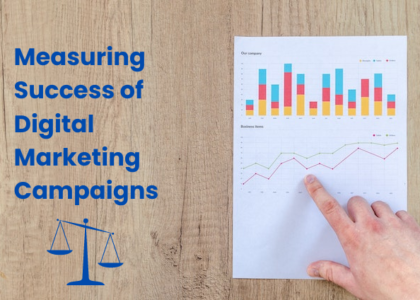Introduction
In today’s fast-paced digital world, mobile marketing has become a crucial strategy for businesses to connect with their target audience. With the widespread use of smartphones and the increasing reliance on mobile devices, reaching customers on the go has never been more important. In this blog post, we will explore the power of mobile marketing and provide valuable insights on how businesses can effectively tap into this dynamic platform to engage customers and drive growth.
1. Understanding the Mobile Landscape
Mobile devices have revolutionized the way people access information, communicate, and make purchasing decisions. With billions of smartphone users worldwide, businesses have a unique opportunity to reach their target market directly. However, to make the most of mobile marketing, it’s essential to understand the mobile landscape and how customers engage with their devices.
2. Mobile-Optimized Websites and Apps
One of the key aspects of mobile marketing is ensuring that your website and apps are optimized for mobile devices. Mobile users expect fast-loading, visually appealing, and easy-to-navigate experiences. A responsive web design ensures that your website adapts seamlessly to different screen sizes, providing a consistent and user-friendly experience across devices.
Moreover, developing a dedicated mobile app can offer additional benefits. Apps allow businesses to leverage push notifications, personalized user experiences, and other features to engage customers and drive conversions. Offering value-added features, such as exclusive discounts or loyalty programs, can further incentivize customers to download and use your app.
3. Location-Based Targeting
Mobile devices are equipped with GPS capabilities, enabling businesses to leverage location-based targeting. By understanding a user’s location, businesses can deliver targeted promotions, personalized offers, and relevant content. For example, a retail store can send notifications to nearby customers about ongoing sales or special discounts, driving foot traffic and increasing sales.
Additionally, location data can provide valuable insights into consumer behavior and preferences. Analyzing location data can help businesses identify patterns, optimize advertising campaigns, and tailor their offerings to specific geographical areas.
4. SMS Marketing and Mobile Advertising
SMS marketing remains a highly effective mobile marketing channel. Sending targeted and personalized SMS messages can engage customers, promote products or services, and drive conversions. However, it’s crucial to obtain explicit consent from customers before sending marketing messages and to provide an easy opt-out option.
Mobile advertising, including banner ads, interstitials, and in-app ads, can also be a powerful tool for reaching customers on the go. Leveraging mobile ad networks and platforms, businesses can target their ads based on user demographics, interests, and browsing behavior. It’s important to optimize ads for mobile devices, ensuring they are visually appealing, concise, and provide clear calls to action.
5. Social Media and Influencer Marketing
Social media platforms have become integral to mobile marketing strategies. Businesses can leverage social media channels to engage with their target audience, build brand awareness, and drive website traffic. Posting relevant and engaging content, running targeted ad campaigns, and actively participating in discussions can help businesses establish a strong mobile presence and foster meaningful customer relationships.
Influencer marketing is another effective mobile marketing tactic. Collaborating with influencers who have a significant mobile following can expand your reach, increase brand credibility, and drive conversions. When selecting influencers, it’s essential to ensure they align with your brand values and target audience.
6. Analytics and Optimization
To maximize the effectiveness of your mobile marketing efforts, it’s crucial to track and analyze relevant metrics. Analytics tools can provide insights into user behavior, conversion rates, app engagement, and campaign performance. By analyzing these metrics, businesses can identify areas for improvement and make data-driven decisions to optimize their mobile marketing strategies.
Conclusion
Mobile marketing offers businesses unprecedented opportunities to reach customers on the go. By understanding the mobile landscape, optimizing websites and apps, utilizing location-based targeting, and leveraging SMS marketing, mobile advertising, social media, and influencer marketing, businesses can effectively engage their target audience and drive growth. It’s important to stay updated with the latest mobile marketing trends, regularly analyze data, and adapt strategies to stay ahead of the competition. Embracing mobile marketing as an integral part of your overall marketing strategy can lead to increased brand visibility, customer engagement, and ultimately, business success in the mobile-first era.





